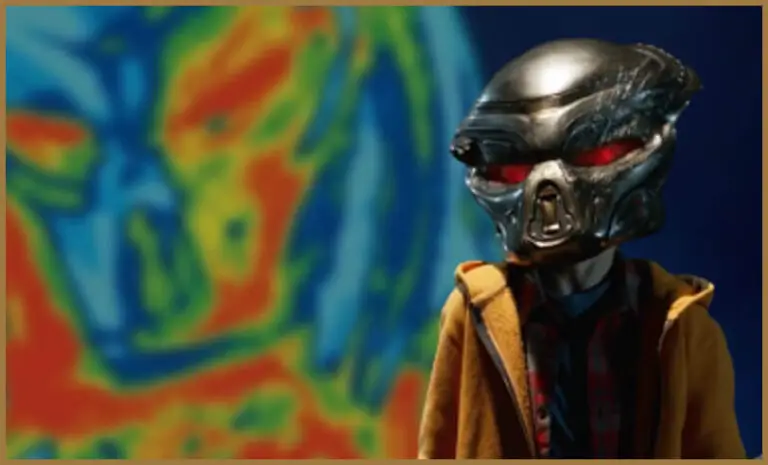Absurd Plot About Autism and Evolution And Why It’s Harmful
The concept and debate of human evolution have always been fascinating, sparking lively discussions about what the future holds.

While this idea of autism and evolution might seem intriguing at first glance, it’s important to understand the potential harm it can cause.
While this claim isn’t new, I reheard the evolution theory as it pertains to autism and human genetics again recently, so I thought I would address it here.
The claim of autism being the next stage of human evolution has no scientific evidence, it oversimplifies the concept of evolution and has harmful consequences for individuals on the autism spectrum due to marginalization and stigmatization.
The Ridiculous Claim of Autism Evolution Theory
Here are three strong reasons why the notion of autism and evolution is unfounded.
- Lack of Scientific Evidence
The claim that autism is the next stage of human evolution lacks substantial scientific evidence.An evolution theory should be grounded in empirical data, but there is no consensus among researchers and experts supporting the idea that autism and human evolution in any way is a selective advantage.
The complexity of evolution requires rigorous scientific investigation, including genetic studies, evolutionary biology research, and population studies.
To date, no conclusive evidence has been found linking autism and evolution and any type of human advantage. In other words, there is no autism and human genetics finding.
- Oversimplification of Evolution Theory
Evolutionary processes are incredibly complex, involving various factors such as genetic mutations, environmental pressures, and adaptation.While I’m no scientific expert, it’s easy to see how reducing such a complex phenomenon to a single condition oversimplifies the intricacies of evolution and ignores the vast diversity of human traits and abilities.
Evolution is a gradual process that operates on the principle of survival and reproduction of the fittest traits within a given environment. Autism, as a neurodevelopmental disorder, cannot be simplistically categorized as the next evolutionary step.
- Ignoring the Negative Impacts of Autism and Evolution
Advocates of the autism and evolution argument may overlook the significant challenges individuals with autism face in their daily lives.As an autistic myself, it is not only inaccurate but downright harmful, to romanticize or trivialize these challenges by framing them as a necessary step forward for humanity.
Individuals with autism commonly struggle with social interactions, communication, sensory sensitivities, and other aspects of daily living.
Failing to acknowledge these difficulties pathologizes individuals on the spectrum and trivializes their experiences.
The Harmful Consequences of Tying Together Autism and Evolution
Here are three important things to know about why this unsupported theory of autism and evolution has harmful consequences.
- Pathologizing and Stigmatization
Propagating the notion that autism is an evolutionary advancement can lead to the marginalization and stigmatization of individuals with autism.Autism is already surrounded by stereotypes and misconceptions. Instead of fostering inclusivity and acceptance, this idea of autism and evolution perpetuates harmful stereotypes, hindering efforts to create a more inclusive society.
Such stigmatization can result in social exclusion, limited opportunities, and discrimination against individuals with autism.
- Diverting Attention from Support and Research
By focusing on autism and evolution’s supposed traits, resources and efforts may be diverted from addressing the pressing needs of individuals with autism.Rather than investing in interventions, therapies, and support systems that can enhance the quality of life for individuals with autism, attention is misdirected towards an unsubstantiated idea.
This diversion of autism and evolution can even delay progress in understanding and supporting individuals with autism, hindering their opportunities for growth and development.
- Oversimplifying Neurodiversity
Neurodiversity recognizes and celebrates the diversity of human brains, including those with autism.It acknowledges that neurological differences are a natural part of human variation.
However, labeling autism and evolution together oversimplifies the concept of neurodiversity, disregarding the complex interplay of various neurotypes and minimizing the importance of inclusivity for all individuals. Embracing neurodiversity means creating an inclusive society that values and supports individuals with diverse neurological profiles.
The Complexity of Autism and its Impact on Individuals vs. Autism and Evolution

Autism is a spectrum disorder, meaning it manifests differently in each person who has it.
People with autism often experience unique sensory sensitivities, which can affect their perception of the world. For some, certain sounds, lights, or textures may be overwhelming or distressing. Others may be comforted in repetitive behaviors or routines.
These sensory differences can significantly impact an individual’s daily life, making it challenging to navigate and engage with the world in the same way as neurotypical individuals.
Communication difficulties are another hallmark of autism. Some individuals struggle with verbal communication, relying on alternative methods such as sign language or augmentative and alternative communication (AAC) systems.
Others may have a remarkable ability to absorb and recall information but struggle with social nuances or understanding non-literal language. It is crucial to recognize and respect these differences in communication styles to foster inclusive interactions.
Rather than focusing on speculative theories about autism and evolution, it is way more important to emphasize empathy, understanding, and support for individuals with autism.
Instead of perpetuating harmful stereotypes or searching for grandiose explanations, society should strive to create environments that accommodate and appreciate the diverse needs and abilities of individuals with autism.
This can be achieved by providing appropriate educational resources, promoting inclusive workplaces, and fostering social acceptance.
Research and investment should be directed toward understanding the underlying causes of autism, improving early diagnosis and intervention, and enhancing the quality of life for individuals with autism and their families.
Why I Debunk Baseless Autism and Evolution Theories
The first time I heard this idea of autism and evolution was when I watched the 2018 movie Predator. First, it was not very good (Hollywood, do better).
There was a character named Rory, a little boy who had autism. Of course, the media stereotyped him in about every way, depicting him as being a savant, lacking social skills, having sensory challenges, and checking off every other typical autistic trait.
In the movie, a scientist states that “autism is the next stage of human evolution.” I don’t know if the people who made the movie genuinely believed that but when I first heard it I was shocked because of how goofy it was.
I don’t know where this idea came from but the producers and writers thought it was good enough to put in a movie about an alien with super strength hunting people for sport.
Of course, the plot twist is that they weren’t hunting for sport after all but to evolve their species by gaining the supposed prized DNA of autistic Rory.
It was a pretty forgettable and lousy movie, so I don’t remember it all, but Hollywood made the boy a stereotype that epitomized autism in not-so-great or accurate ways.
Maybe you’ll want to watch (or rewatch) it and have a better opinion about the movie and the character portrayal of autism. But Hollywood needs to do some research about what autism is (and isn’t) and if we keep telling them and boycotting their movies that have bad representation (or just bad movies in general) we can get them to change.
Instead of believing or following baseless theories, let’s embrace empathy, inclusivity, and support for all individuals, including those with autism.
By doing so, we can create an inclusive society that recognizes and accommodates the diverse needs and abilities of individuals with autism. Then, we can all evolve by fostering a more compassionate and understanding future for everyone in the world.
Additional Misconceptions That Lead To Autism Stigmas and Stereotypes
Learn more about other stigmas and stereotypes that autistics face:
· Why Labeling People Can Lead to Stereotyping and Discrimination
· Autism Media Stereotypes: We’re Not All Geniuses, Savants, or Lonely
· Beyond Stereotypes: How Rain Man Revolutionized the Perception of Autism
· Moving Past the Tired Conspiracy Theory of Vaccines and Autism
· Discover the Powerful Bond Between Autism and Pets
· 3 Reasons Why Pathologizing Crushes Autism Acceptance and Inclusion
· The Hidden Hurdles: Challenging Autism Stigmas in Today’s Politics
· History of Autism: Revealing Shocking Mysteries from the Past
· Knocking Down the Stigma of Autism Obsession
